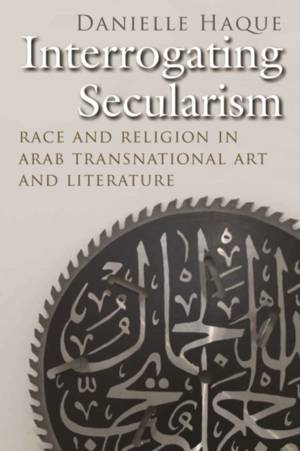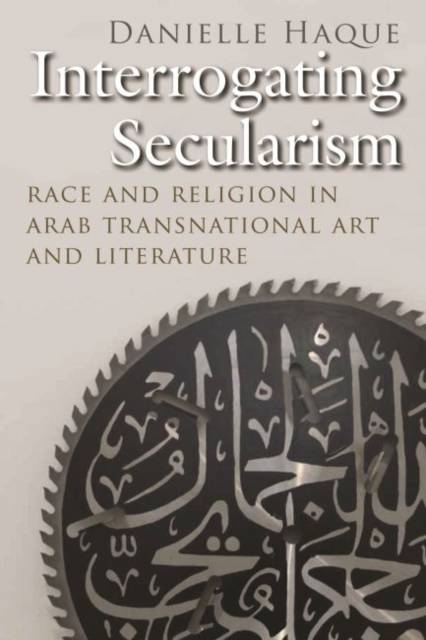
Door een staking bij bpost kan je online bestelling op dit moment iets langer onderweg zijn dan voorzien. Dringend iets nodig? Onze winkels ontvangen jou met open armen!
- Afhalen na 1 uur in een winkel met voorraad
- Gratis thuislevering in België vanaf € 30
- Ruim aanbod met 7 miljoen producten
Door een staking bij bpost kan je online bestelling op dit moment iets langer onderweg zijn dan voorzien. Dringend iets nodig? Onze winkels ontvangen jou met open armen!
- Afhalen na 1 uur in een winkel met voorraad
- Gratis thuislevering in België vanaf € 30
- Ruim aanbod met 7 miljoen producten
Zoeken
€ 50,95
+ 101 punten
Uitvoering
Omschrijving
Interrogating Secularism is a call to rethink binary categories of "religion" and "secularism" in contemporary Arab American fiction and art. While most studies that explore the traffic between literature and issues of secularism emphasize how canonical texts naturalize and reinforce secular values, Interrogating Secularism approaches this nexus through novels written by and about ethnic and religious minorities. Haque juxtaposes accounts of secular experience in the writing of Arab Anglophone authors such as Mohja Kahf, Rabih Alameddine, Khaled Mattawa, Laila Lalami, and Rawi Hage, with Arab and Muslim artists such as Ninar Esber, Mounir Fatmi, Hasan Elahi, and Emily Jacir. Looking at multiple genres and modes of aesthetic production, including AIDS narratives, visual art, and digital media, Haque explores how their conventions are used to subvert the ideals tied to secularism and the various anxieties and investments that support secularism as a premise. These authors and artists critique Western iterations of secular thought in spaces such as art exhibits, airports, borders, and literary discourses to capture how the secularism thesis reproduces the exclusivity it intends to remedy.
Specificaties
Betrokkenen
- Auteur(s):
- Uitgeverij:
Inhoud
- Aantal bladzijden:
- 280
- Taal:
- Engels
- Reeks:
Eigenschappen
- Productcode (EAN):
- 9780815636496
- Verschijningsdatum:
- 25/09/2019
- Uitvoering:
- Paperback
- Formaat:
- Trade paperback (VS)
- Afmetingen:
- 152 mm x 226 mm
- Gewicht:
- 385 g

Alleen bij Standaard Boekhandel
+ 101 punten op je klantenkaart van Standaard Boekhandel
Beoordelingen
We publiceren alleen reviews die voldoen aan de voorwaarden voor reviews. Bekijk onze voorwaarden voor reviews.











